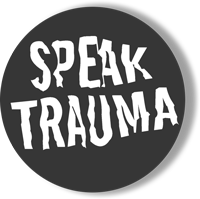The Impacts of Trauma

“Trauma is personal. It does not disappear if it is not validated. When it is ignored or invalidated the silent screams continue internally heard only by the one held captive. When someone enters the pain and hears the screams healing can begin.”
― Danielle Bernock, Emerging With Wings: A True Story of Lies, Pain, And The LOVE that Heals
The impacts of trauma go far beyond one’s simple imagination. There is not one word or end result; the impacts range from physical, to behavioural and even spiritual. If untreated, the impacts of trauma can manifest in ugly ways; for instance, the physical effects can range from insomnia to headaches and digestive issues. Whereas, psychological responses range from sadness, anger and shame to nightmares and even difficult relationships.
We continue our conversation with Dr. Ottilia Brown from Light House Arabia on the various impacts of trauma. If you missed the last blog on understanding trauma, read it here.
The impact of trauma is far-reaching with regard to our physical, psychological and spiritual wellbeing. The physical effects of trauma can include:
- body pain
- elevated blood pressure
- headaches
- altered sleep patterns
- changes in appetite
- dizziness
- gastro-intestinal symptoms
The common psychological responses to trauma are:
- sadness
- fear
- denial
- anger
- shame
- numbness
- nightmares
- feelings of loneliness
- emotional outbursts
- difficulties concentrating
- relationship difficulties
Behavioral consequences of trauma can include:
- substance abuse
- anger outbursts
- social withdrawal
- avoidance behaviors
- difficulties with achieving goals
Spiritual consequences of trauma can include:
- anger with a higher power
- guilt associated with feeling anger
- feeling abandoned by a higher power
If you would like to know more about a particular symptom or impact, drop us a comment and we will get back to you as soon as possible.

Dr. Ottilia Brown

Trackbacks/Pingbacks